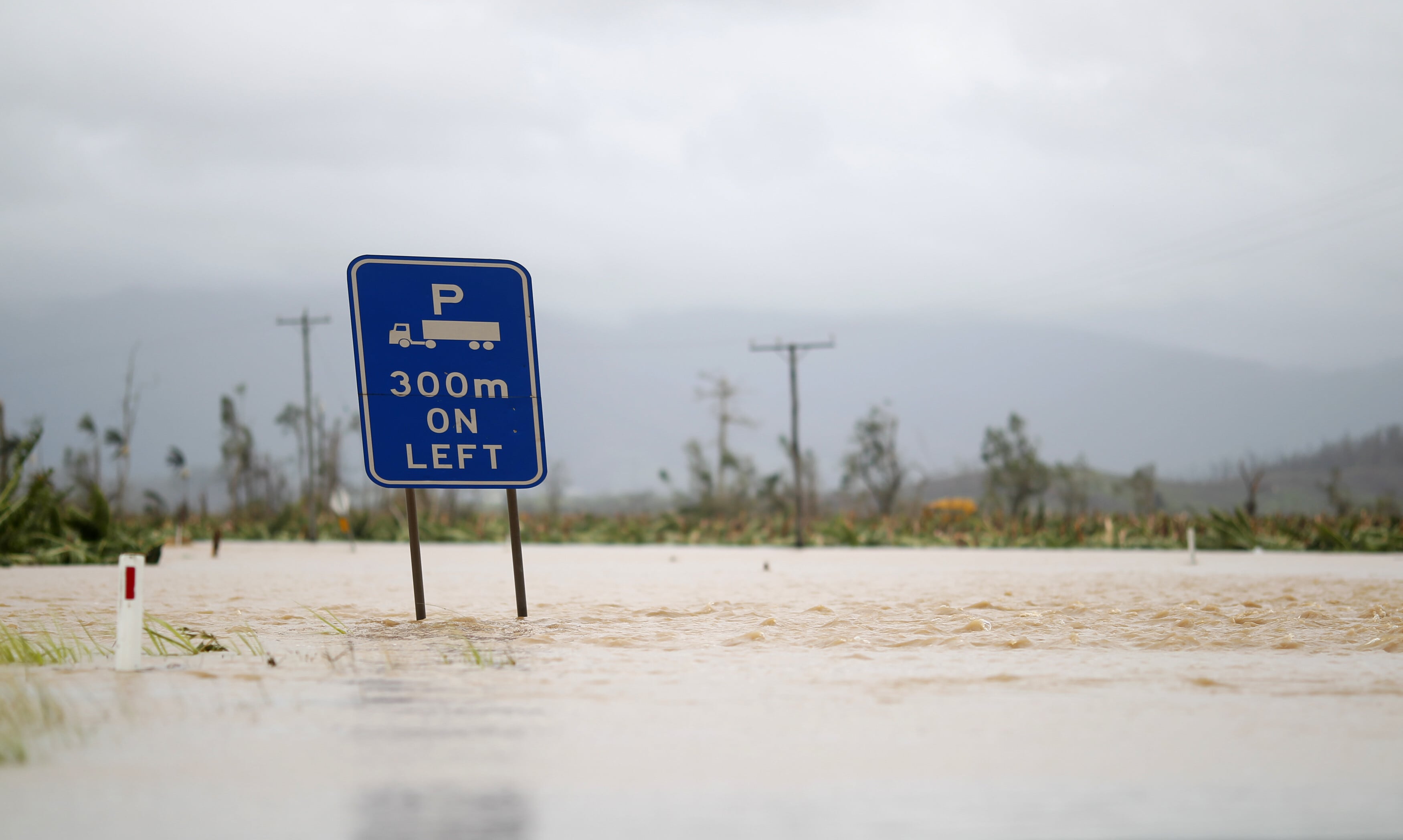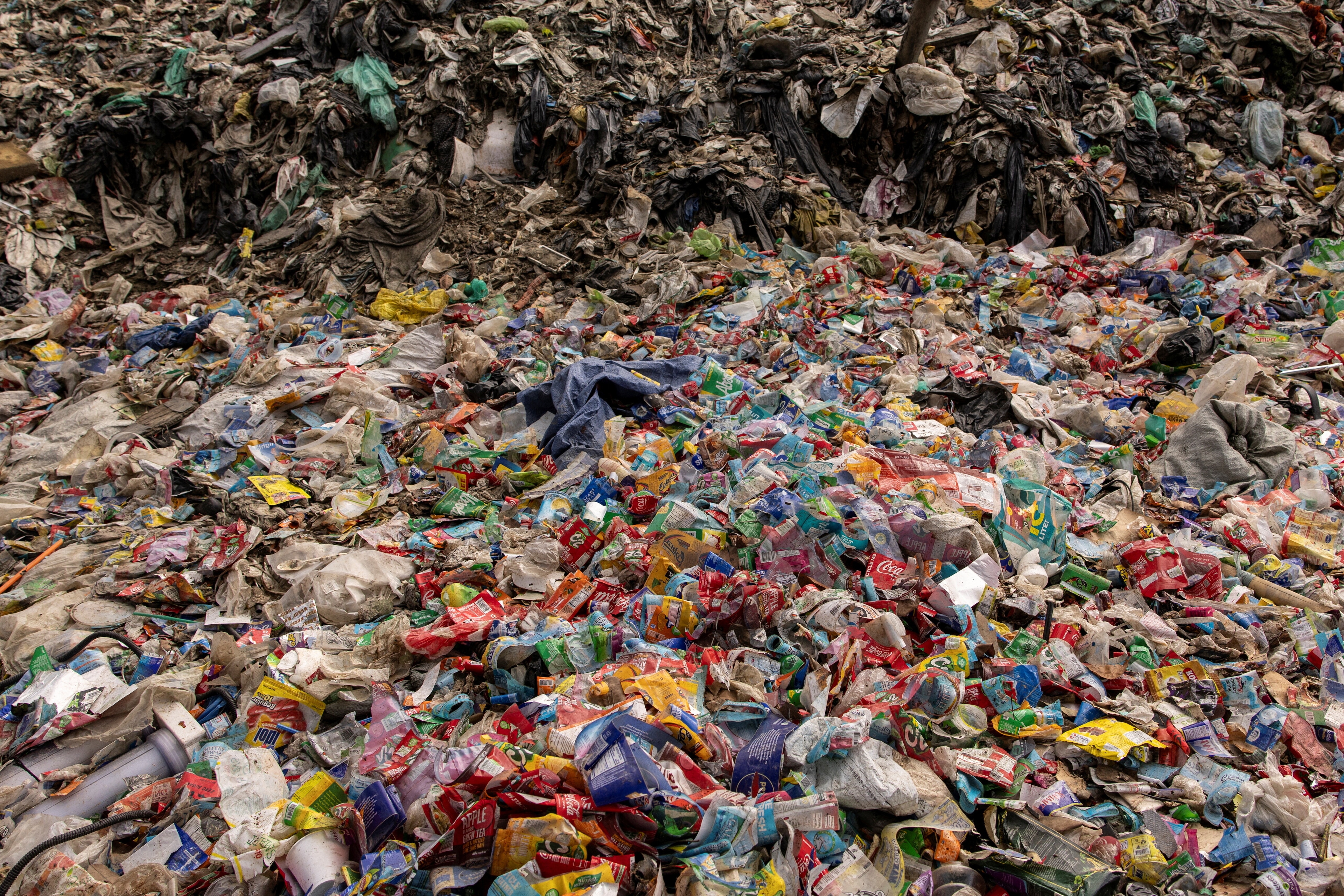This is Norway's cash incentive for other nations to protect their forests

Environmentalist Dejesus Aparecido checks a tree at the National Forest of Jamari in Itapua do Oeste, Brazil.
Image: REUTERS/Alexandre Meneghini
Stay up to date:
Norway
- To slow deforestation, Norway will offer nations $10 per tonne of carbon dioxide stored by forests.
- In order to qualify for the bonus, nations need to adopt a rigorous accounting and monitoring system for forests - much stricter than current measures.
- There are still significant hurdles to overcome, however, with not everyone convinced of the benefits.
Norway is doubling the price it guarantees developing nations to keep their tropical forests standing, in a step to slow catastrophic losses and encourage big companies to invest far more in nature to combat climate change.
In exchange for boosting the floor price it offers nations to slow deforestation to $10 per tonne of carbon dioxide from $5 - until now the international standard - countries must adopt better monitoring, said Per Fredrik Pharo, director of Norway's International Climate and Forest Initiative.
Norway is the top donor for safeguarding rainforests, ahead of nations including Germany and Britain, and has spent up to 3 billion crowns ($330 million) a year since 2008.
But despite concentrated efforts to curb losses, tropical forests are being cleared at a rate of a soccer pitch every six seconds - and deforestation accounts for about 11% of man-made greenhouse gas emissions each year, according to the U.N. Food and Agriculture Organization.
Trees naturally curb global warming by soaking up carbon dioxide from the air to grow, which makes protecting forests a cost-effective way to deal with climate threats.
U.S. President-elect Joe Biden called in September for the world to mobilise $20 billion to protect the Amazon.
That rainforest locks up an estimated 500 tonnes of carbon dioxide in every hectare - roughly the size of a football pitch.
At $10 a tonne, tropical forest countries could earn $5,000 for every hectare of rainforest they conserve compared to a benchmark of historic rates of losses.
The move comes as major firms including Walmart, Apple, Microsoft, Amazon and Shell have set goals of net-zero emissions in coming decades since almost 200 governments adopted the 2015 Paris climate agreement.
To achieve those goals, many - besides slashing their own emissions - will need to pay to offset what they cannot cut, through measures potentially including protecting forests.
Pharo said getting the payment system for forest protection running effectively had suffered from "a chicken and egg problem" up to now.
But "serious companies are now entering the fray", he said, with Norway "using our money to grease the wheels".
Tougher monitoring
On one side of the chicken-and-egg dilemma, developing nations have found it less profitable to safeguard rainforests – at least in the short term – than to allow logging or to permit farmers to burn down forests to produce soya, palm oil or beef.
On the other, donor nations and companies are wary of paying to protect forests when their investments may literally go up in smoke. Deforestation has risen in Brazil, for instance, since populist President Jair Bolsonaro took office in 2019.
To qualify for the $10 floor price, Pharo said tropical forest governments will have to adopt a rigorous accounting and monitoring system for forests, known as ART TREES, worked out in February.
"What we are saying to countries – like Gabon, Indonesia, Colombia – is that 'You have our price guarantee. If you deliver tonnes under ART TREES we will pay you $10 a tonne, up to some ceiling'," he said.
The hope is that compliance tracked by satellites and on-the-ground inspections will make big companies confident enough to invest $10 per tonne or more, allowing Norway to stand aside and act mostly as a back-up.
Western Europe's top oil and gas exporter, Norway also has helped set up non-profit group Emergent to act as a broker to promote forest investments by companies.
Still, it is unclear if the $10 floor price will be enough to unlock investments.
Carlos Manuel Rodriguez, a former Costa Rican environment minister who heads the Global Environment Facility in Washington, said the value of standing forest had to match what farmers in tropical nations could earn from "unsustainable cattle ranching or agriculture after the land is deforested" and reward "positive land uses".
Safeguarding forests also offers benefits like protecting biodiversity and human well-being, he said. But the costs of managing and monitoring forests to limit deforestation is often "higher than $10" per tonne of carbon dioxide.
"For Least Developed Countries ($10) may be attractive, but for middle-income countries and those with high forest cover, it may be very low," he said.
Frances Seymour, a senior fellow at the World Resources Institute, a U.S. think-tank, and chair of ART TREES, said a contract signed by Norway and Gabon in September 2019 – the first for $10 a tonne – raised eyebrows among forest experts as "a big step forward".
"Private sector talk of $15 a tonne has raised eyebrows even further (and is) more in the ballpark towards $20 that would actually be of interest," she said.
She said the international focus needed to be on slowing losses of existing rainforests, rather than planting new trees. She predicted a Biden administration will increase U.S. engagement in protecting forests.
Anders Haug Larsen, of the Rainforest Foundation Norway, welcomed Norway's plan but said $10 "was not enough by itself to make the carrot big enough" for many forest nations.
Among hard-to-value extra benefits, forests are vast stores of biodiversity, from orangutans to jaguars or rare orchids. About 25% of all pharmaceuticals have ingredients from plants.
Managing forests better also can have spinoffs such as eco-tourism and sustainable logging.
Mary Grady, director of ART in California, said she was in talks about taking part with about 25 developing countries or sub-national governments that have power to pass laws to safeguard forests.
Hurdles
By enlisting governments, ART TREES will try to avoid past problems where successful forest protection in one region merely displaced loggers and farmers elsewhere, with no net benefits for forests.
"The corporate buyers like to be able to point to a specific region, a community, an iconic species they are protecting," Grady said.
"While that is great on the cover of the annual report, it's not delivering a real climate benefit if you realise that the forest is being burned down in the next jurisdiction over," she added.
Emergent's executive director Eron Bloomgarden said he was in talks with a wide range of major companies, in oil and gas, finance, technology and other sectors, with combined annual turnover of $2 trillion.
He declined to give a list of names, except Norwegian energy group Equinor, which has publicly said it will invest in forests once a "well-functioning market is in place".
Bloomgarden said he hoped for a first round of big corporate announcements of investments by a UN climate summit next year in Glasgow.
Constance McDermott, a researcher at the Environmental Change Institute at Oxford University, said there were still many hurdles.
Any certification system will struggle, for instance, to ensure indigenous peoples' rights to land, something often disputed by governments in developing nations, she said.
She called the Norwegian initiative "an interesting idea. But it has a lot of challenges to address."
Accept our marketing cookies to access this content.
These cookies are currently disabled in your browser.
Accept our marketing cookies to access this content.
These cookies are currently disabled in your browser.
Accept our marketing cookies to access this content.
These cookies are currently disabled in your browser.
Accept our marketing cookies to access this content.
These cookies are currently disabled in your browser.
Don't miss any update on this topic
Create a free account and access your personalized content collection with our latest publications and analyses.
License and Republishing
World Economic Forum articles may be republished in accordance with the Creative Commons Attribution-NonCommercial-NoDerivatives 4.0 International Public License, and in accordance with our Terms of Use.
The views expressed in this article are those of the author alone and not the World Economic Forum.
Related topics:
Forum Stories newsletter
Bringing you weekly curated insights and analysis on the global issues that matter.
More on Nature and BiodiversitySee all
María Daniela Limongi Izaguirre, Edwin Josue Castellanos and Marisol Argueta de Barillas
September 22, 2025
Michael Donatti and Benoit Bégot
September 19, 2025
Tom Crowfoot
September 18, 2025
Caroline Meech and Sakshee Singh
September 17, 2025
Tania Strauss and Beverley Postma
September 17, 2025
Metolo Foyet
September 16, 2025





